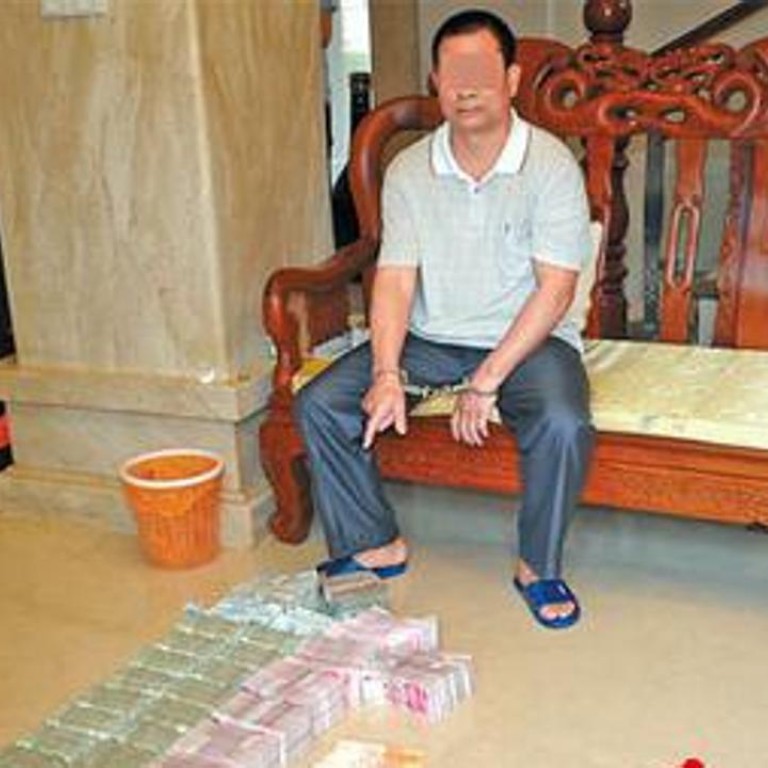
Revealed: the underground bank that illegally transferred millions in cash out of China
A former printing factory owner from southern China gave up his business to run an underground bank illegally transferring money out the country for clients, with average transactions exceeding 17 million yuan (HK$20 million) a day and up to nearly 400 million yuan a month, according to a newspaper report.
It is the largest underground bank to be busted by the police in Dongguan in Guangdong province and millions in cash were found by officers bundled up and casually stored in plastic bags and paper boxes, the Yangcheng Evening News said.
READ MORE: Underground banks siphon HK$245 billion out of Chinese province in a single year ... and that’s just the tip of the iceberg
Twenty suspects were arrested at five hideouts in the Changping, Tangxia and Qingxi townships by Dongguan police last year, according to the article.
“The amount of cash found at the crime scenes shocked us. One of our unit found more than 3.4 million yuan in cash bundled up in a paper box,” one officer was quoted as saying.
Single transactions could go as high as 3.5 million yuan and most clients were Hong Kong or Japanese businesses based in Dongguan wanting to move money out of mainland China avoiding currency restrictions.
The amount of cash found at the crime scenes shocked us. One of our unit found more than 3.4 million yuan in cash bundled up in a paper box
Guangdong police revealed this week that at least 207 billion yuan was channelled out of the province last year in illegal money transfers, representing a seven fold rise on 2014.
The money was sent in 83 cases of illegal transfers discovered by Guangdong security officials, with some cash channelled to Hong Kong and Macau.
Experts warned, however, that these cases were likely to be the tip of the iceberg.
The central government’s sweeping anti-corruption campaign and a weakening yuan are among factors that have triggered the recently strong demand for underground bank transactions.
The illegal bank in the latest case publicised started out in a hidden room inside a printing factory and eventually moved to a three-story house in the Changping district by the end of 2014, according to the newspaper report.
READ MORE: Beijing targets China’s vast web of underground banks in crackdown on corruption
A police investigation began in September the same year and officers found the bank’s boss would pass on business to other branches in Tangxia and Qingxi townships.
“Division of labour was finalised with strict details and was well organised, with designated personnel handling finance, business, delivery and the stamping of seals,” a police officer was quoted as saying.
The officer added that bank operations were only handled by close relatives of its boss.

